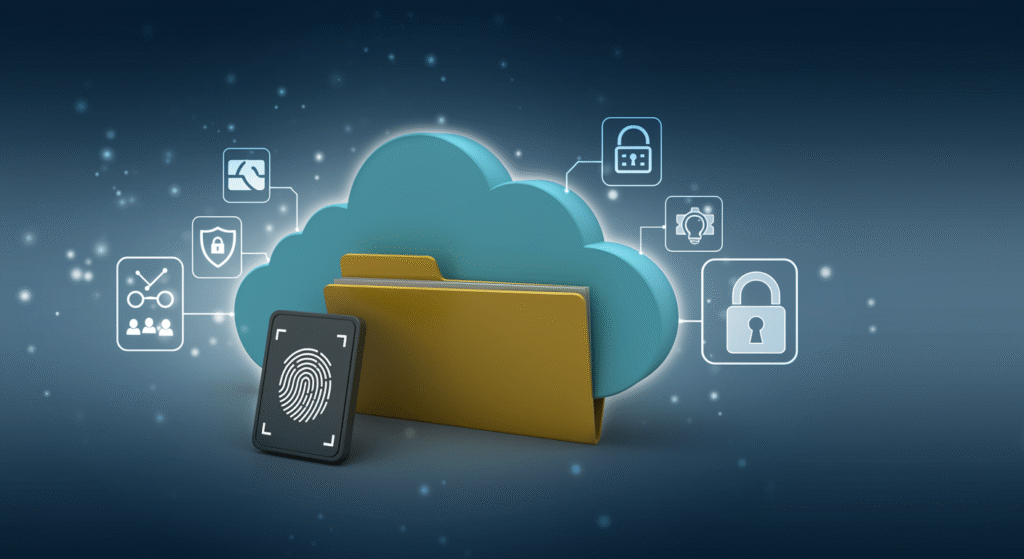
Confidentiality in the Digital Age: Cybersecurity Best Practices for PAs and EAs
In today’s hyper-connected workplace, confidentiality isn’t just a professional virtue — it’s a digital necessity. For Personal Assistants (PAs) and Executive Assistants (EAs) who manage sensitive communications, financial data, and executive schedules, even a minor data breach can have serious implications. The shift to cloud-based collaboration and remote work has opened new doors for efficiency — and new risks for cyber threats.
This article explores essential cybersecurity best practices every PA and EA should follow to protect sensitive information, ensure compliance, and maintain the trust of executives and organizations in the digital age.
1. Understanding the Confidentiality Challenge in 2025
Modern PAs and EAs are digital gatekeepers. From handling executive emails and financial reports to coordinating confidential client meetings, the amount of sensitive data assistants process daily is staggering.
With cyberattacks becoming more sophisticated — and targeting personal inboxes and mobile devices — the responsibility to ensure data privacy falls heavily on those closest to leadership.
Key takeaway: Confidentiality now means protecting information not only from office leaks but also from phishing, ransomware, and insider threats.
2. Building a Cybersecurity-First Mindset
Before implementing tools, assistants must cultivate a security-first mindset. Awareness and vigilance are the foundation of digital confidentiality.
- Recognize phishing attempts: Be cautious with unfamiliar senders or links.
- Verify information sources: Always confirm sensitive requests directly with executives.
- Update regularly: Ensure all devices, browsers, and security software are updated to the latest versions.
- Two-factor authentication (2FA): Use 2FA on all work-related platforms and accounts.
By prioritizing cybersecurity in daily tasks, PAs and EAs become the first line of defense against breaches.
3. Secure Communication and Data Sharing
The modern assistant’s workflow often involves file sharing, collaboration apps, and remote access. Each of these channels poses potential vulnerabilities if not properly managed.
Best practices for secure communication:
- Use encrypted email services (like ProtonMail or Outlook with encryption settings).
- Avoid sending sensitive data through public Wi-Fi.
- Use VPNs when accessing work networks remotely.
- Share documents through secure cloud platforms like OneDrive, Dropbox Business, or Google Workspace with restricted access settings.
Remember: Confidential data should never be sent via unsecured messaging apps or downloaded onto personal devices.
4. Device Security and Access Management
A lost or compromised device can lead to major breaches. Implement these security protocols across all devices:
- Use strong, unique passwords (consider a password manager like 1Password or LastPass).
- Enable biometric authentication where possible.
- Lock devices when not in use.
- Encrypt laptops and mobile storage drives.
- Keep work and personal data strictly separated.
Many organizations now enforce Mobile Device Management (MDM) policies to remotely wipe data if a device is lost — a critical step for modern executives’ assistants.

Tips:
- Review access logs regularly.
- Revoke permissions immediately after project completion.
- Backup sensitive data on encrypted drives.
- Follow company data retention policies to delete outdated files safely.
Example:
Hackers often impersonate executives via email to trick assistants into wiring funds or sharing documents. Awareness and double verification prevent these costly mistakes.

7. Balancing Efficiency and Security
Security should never slow down productivity. The best approach integrates cybersecurity seamlessly into workflow processes.
- Automate password changes where possible.
- Use secure scheduling tools for meetings with confidential attendees.
- Store sensitive data in tiered access systems — executives, assistants, and IT teams each have specific visibility levels.
When cybersecurity becomes part of daily habits, maintaining confidentiality feels effortless.
Conclusion
Confidentiality has always been the cornerstone of an assistant’s role — but in today’s digital environment, it requires constant vigilance, updated knowledge, and proactive management. By mastering cybersecurity best practices, PAs and EAs can not only protect their executives but also strengthen the organization’s overall data integrity.
The digital age demands digitally secure professionals — and today’s top assistants are meeting that challenge head-on.